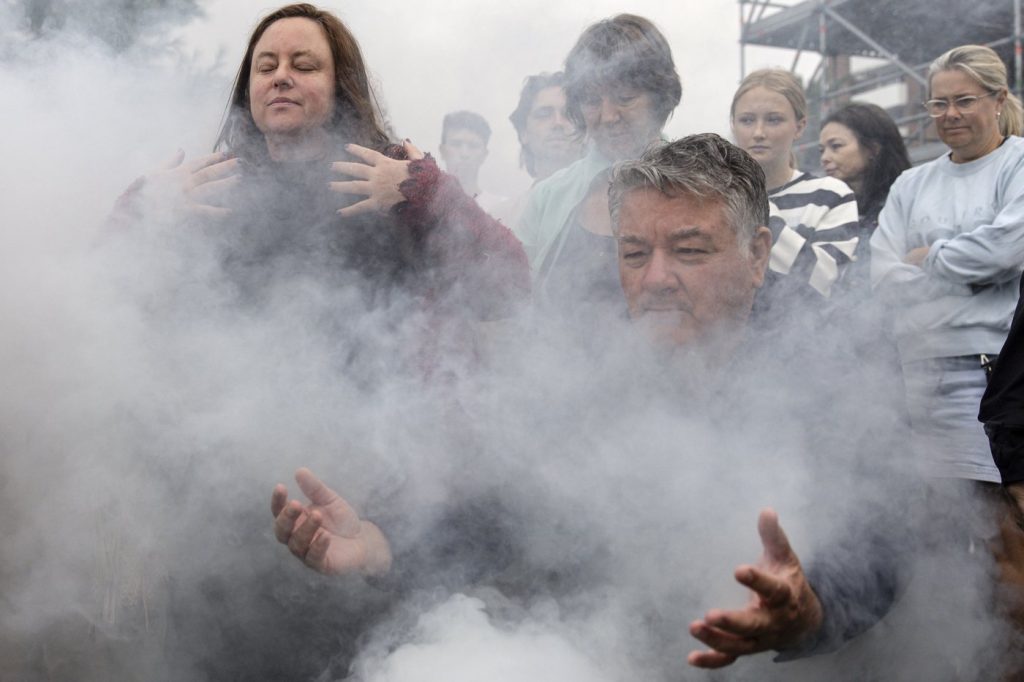MELBOURNE, Australia (AP) – On Australia Day, celebrated on January 26, Australians across the country gathered to honor the national holiday while simultaneously voicing their dissent regarding the treatment of Indigenous Australians. The day commemorates the establishment of a British colony at Sydney Cove in 1788, an event that led to the British claim over the entire territory without any treaty with the Indigenous population.
Indigenous rights advocates observe January 26 as “Invasion Day” and have organized protest rallies in major cities, arguing that the national holiday should not celebrate such a contentious and painful historical event. The day is considered a public holiday, but this year, as it falls on a Sunday, the following Monday has been designated as a holiday.
In recognition of the hurt Australia Day inflicts on many Indigenous Australians—who represent about 4% of the population and are the country’s most disadvantaged ethnic group—some businesses have opted to refer to the extended weekend as the “January long weekend” instead of the “Australia Day long weekend.” Moreover, in recent years, Australia Day has also been the date for citizenship ceremonies for new immigrants. However, various local government councils have chosen to conduct these ceremonies on different dates in light of the ongoing controversy surrounding January 26.
Since gaining power in the 2022 elections, Prime Minister Anthony Albanese’s center-left Labor Party government has sought to address the differing opinions regarding Australia Day. In a significant move in 2023, the government allowed public servants to work on Australia Day and take an alternative day off, reversing a past directive from the previous conservative government, which mandated that public servants refrain from working on this date when it fell on a weekday.
Opposition leader Peter Dutton contends that all councils should be obligated to conduct citizenship ceremonies on January 26 if his party secures victory in the upcoming elections, which are due by May 17. He remarked, “If the prime minister doesn’t have the strength of leadership to stand up to mayors and others who don’t want to celebrate Australia Day, then our country’s in more trouble than we first realized.” Dutton has suggested that Albanese’s hesitance to firmly support Australia Day is an effort to please the minor Greens party, which opposes celebrations on January 26.
Political analysts believe that Labor could lose its parliamentary majority in the next election and may need the support of Greens lawmakers to form a minority government. Albanese accused Dutton of being divisive by not attending Australia Day events in Canberra while he participated in a citizenship ceremony in Brisbane, his hometown. Albanese expressed, “The national Australia Day event should be attended by both sides of the Parliament. They should be bipartisan,” emphasizing the importance of unity in national celebrations.
Historian Frank Bongiorno from the Australian National University analyzed the dynamics surrounding Australia Day, stating, “These figures will insist that they want it to be a day of unity, but they’ll invariably behave in ways that promote disunity around the day. That’s really how culture wars work.” Dutton has further accused Albanese of dividing the nation along racial lines due to the proposed referendum in 2023 concerning Indigenous rights, which aimed to enshrine an Indigenous body known as the Voice in the constitution to address Indigenous issues. However, Australians ultimately voted against this initiative.
Additionally, Dutton has criticized Albanese’s focus on Indigenous rights amid a cost of living crisis affecting many Australians, as inflation and high interest rates continue to burden the populace. This ongoing debate symbolizes the complex interplay of national identity, historical responsibility, and the rights of Indigenous Australians within contemporary Australian society.










